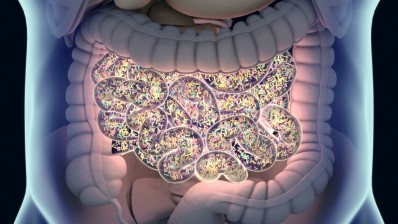Weight loss from dieting has no effect on psychological stress in adults: Australian review

Psychological stress has been associated with unhealthy lifestyle habits such as smoking, physical inactivity, alcoholism, and consuming high-fat foods, all of which often lead to obesity-related diseases such as heart disease and cancer.
However, while previous studies have suggested that high levels of stress may be linked to higher body weight, results have largely pointed to a weak association between the two.
Weighing on the mind
Researchers at Deakin University therefore conducted a meta-analysis of RCTs to determine the impact of diet-induced weight loss on psychological stress in overweight and obese adults.
They searched databases such as Medline Complete, Embase and PsycINFO up to February 2018, informing their assessment with the mean difference in changes in stress from baseline to intervention between treatment and control groups.
They reviewed 10 RCTs, which involved a total of 615 participants (502 women and 113 men) aged between 20 and 80 years.
Subsequently, they reported that there was no overall change in stress, even in the five studies where participants in the intervention groups had experienced significant weight loss compared to participants the control groups, who had lost no weight.
The researchers noted that there was low heterogeneity for all analyses, adding that the benefits of weight loss for the overweight and obese seemed to neither reduce nor increase psychological stress following the period of weight loss.
However, they also said it was important to take into account the duration of the studies, as "there may be an optimal study duration which would result in an improvement in stress".
Still, the five aforementioned studies that had produced no effect of weight loss on stress levels took place over a period of three weeks to 12 months, suggesting that future studies may need to last longer than a year.
Flaws and future considerations
The researchers stated that there were a few methodological flaws in the studies: in some, stress was measured only at baseline and at the end of the trials, meaning there was no indication of the patterns of change in stress throughout the studies.
In addition, only five of the 10 RCTs were designed to specifically examine the impact of weight loss on stress as the primary outcome. At the same time, possible improvements in stress early on in the interventions may not have been detected in some of the studies.
The researchers concluded: "This systematic review and meta-analysis of randomised controlled clinical trials showed that weight loss induced by dietary restriction in overweight and obese men and women does not have a beneficial or detrimental effect on self-reported psychological stress.
"However, further randomised controlled trials with robust methods measuring stress, utilising solely a dietary approach with sufficient sample sizes and study durations which result in significant weight loss would be required before we can draw any final conclusions about the effect of weight loss on stress.
"It is recommended that stress is measured at a number of time points throughout an intervention, to give a more accurate representation of the pattern of changes over time."
Source: Nutrients
https://doi.org/10.3390/nu10050613
"Diet-Induced Weight Loss Has No Effect on Psychological Stress in Overweight and Obese Adults: A Meta-Analysis of Randomized Controlled Trials"
Authors: Alison O. Booth, et al.

















